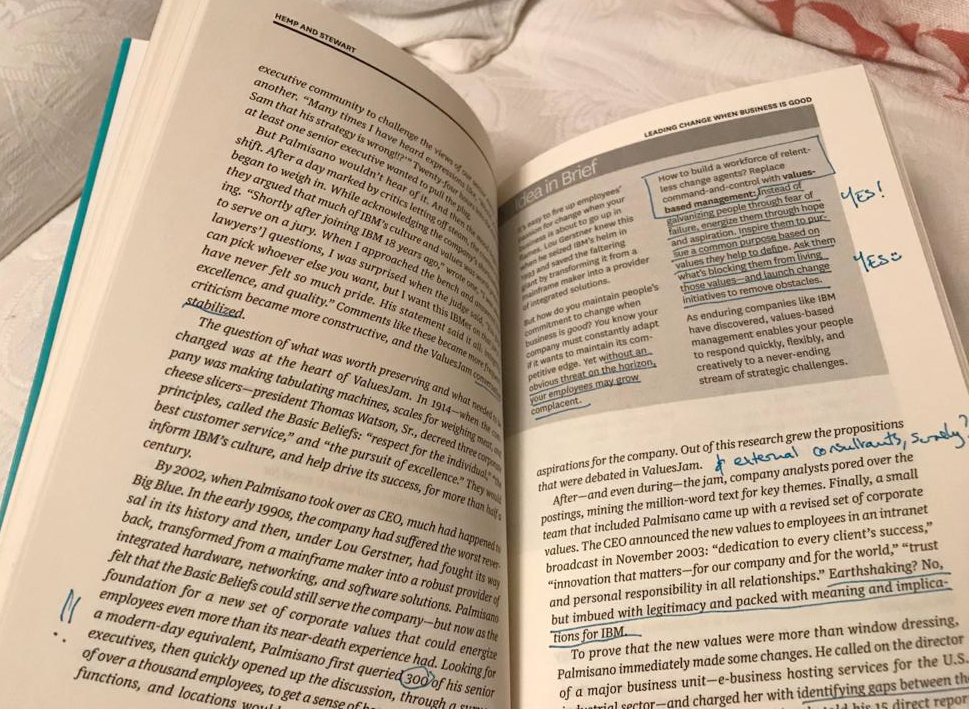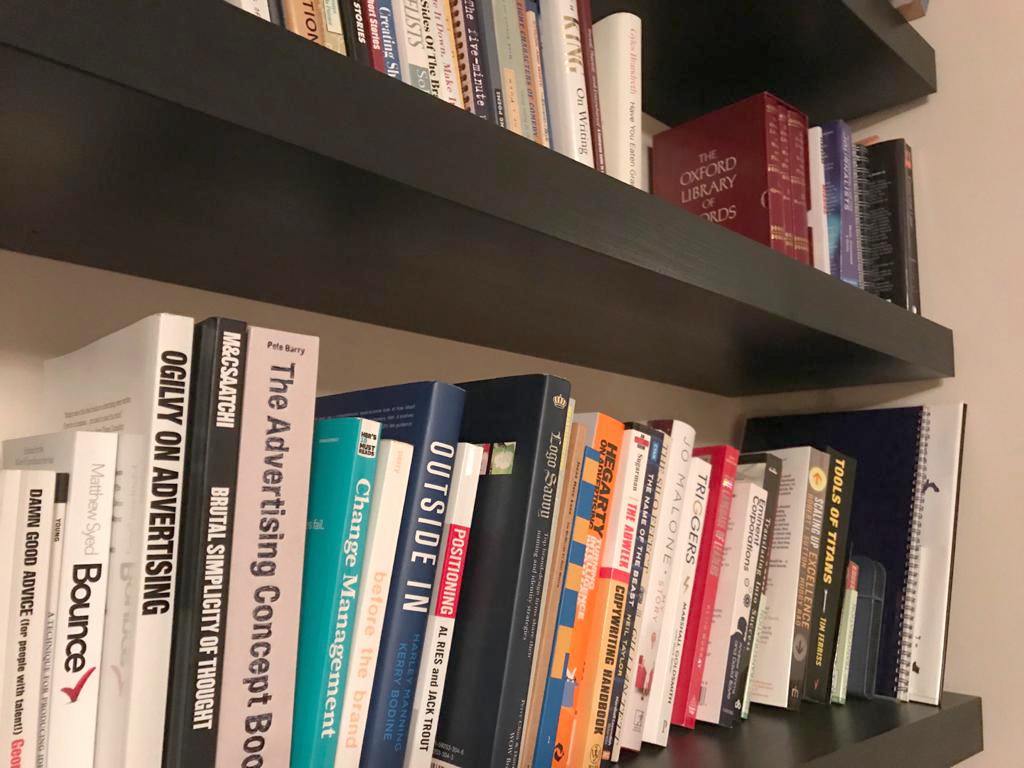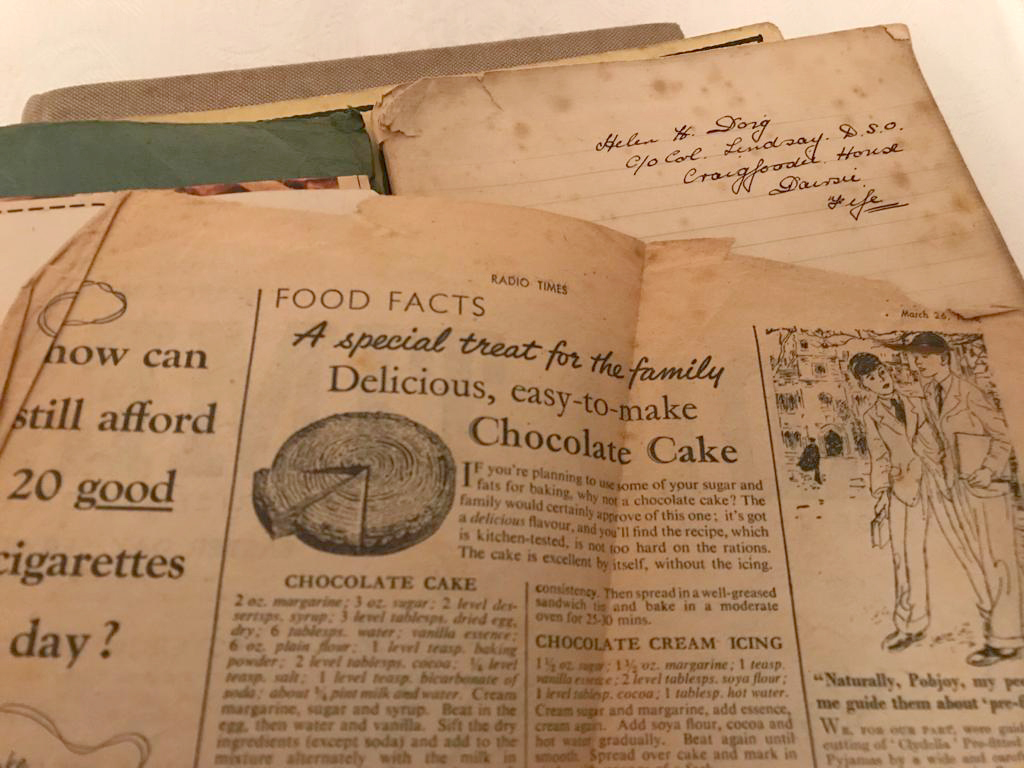
By Liz
I was invited to join a business book club this week. The organiser gave me a top-level explanation of the club – and then told me that she liked to keep books in pristine condition.
Another person joined in, “Oh me too – and I never lend them to anyone either.”
They both looked to me – probably guessing that I too would look after books with the same reverence.
“Err, not me,” I said, “I scribble all over them.”
See, to me, a book – especially a business book – is a resource. A tool, if you like. And I get far more out of printed resources if I can scribble in the margins – little notes to myself about whether I think an idea could work. Or if it’s similar to something else. Or if I think it’s complete tosh… and why.

My attitude to books is that they’re stuffed with ideas – and if I’m going to make use of any of them, I have to pull them out and commit them to memory in some way. And that usually means a scribble, an underline or a quick slash through with a highlighter pen. Research, after all, suggests that our brains process handwritten notes more deeply than ones we type – or simply try to remember.
Of course, there are some books that I wouldn’t doodle in (or break their spines, bend their pages or any of the other things I do to a lot of the books in my collection). They include:
Sharers
If I’m picking a book out of a shared collection – like a public or private library – then of course I’m going to return it exactly as I found it.
Lenders
I only mark up my own property. If you ever lend me a book, don’t worry. It’ll come back exactly as you lent it to me.
Special gifts
If someone gives me a volume of poetry – or a novel they think I’ll like, I probably won’t decorate it in neon Stabilo Boss. The value of these books goes beyond the information they contain. Basically, I wouldn’t scribble over the love and time someone put into choosing them for me.
One-offs
I have in my possession a handful of books that have been passed down through my family. Some are old school prizes. One is a collection of kids’ stories from 1914 that is essentially a WW1 fundraising tool. Others are my grandmother’s and great aunties’ books of recipes and household management tips, neatly set out in their own handwriting, documenting aspects of social history in Fife in the 30s, 40s and 50s.

But all other books are – in my opinion – fair game. Notes, bends, tucks, stickies, scribbles and underlining everywhere.
I simply have a problem with the notion that books are sacrosanct – that somehow, words become untouchable because they’ve been printed and bound.
Words are, of course, just symbols. The word “cat” isn’t a fluffy creature; it’s a symbol that’s used to represent a fluffy creature. And somehow when words go into a book, it’s as though they become super-symbols… untouchable and unarguable. And I think that’s a problem.
While journalism – often quite rightly* – is still seen as tomorrow’s chip paper, books somehow demand greater respect.
I honestly don’t blame anyone for mollycoddling their books. But I do think we should always question words – and the ideas they represent. And for me, this means not being too precious about the medium. I mean, I even wrote a book that was meant to be written in (a new edition of the hard copy will be available at some point this year).
So when I turn up to this book club, it’s probably going to be with a very dog-eared, scribbled in, broken backed – but thoroughly absorbed and digested – tome. I hope it won’t make my fellow book club people reach for their heart pills.
* I used to be a journalist, so it’s ok for me to say this.
